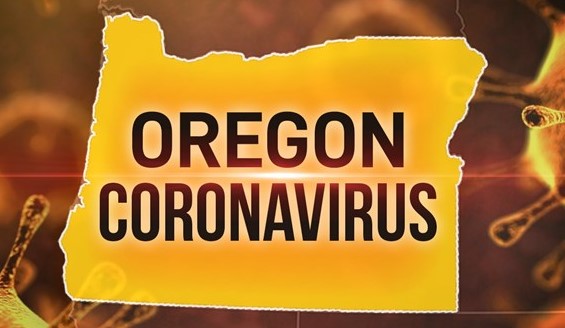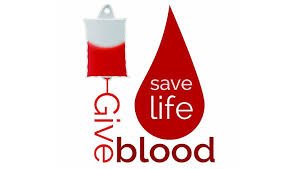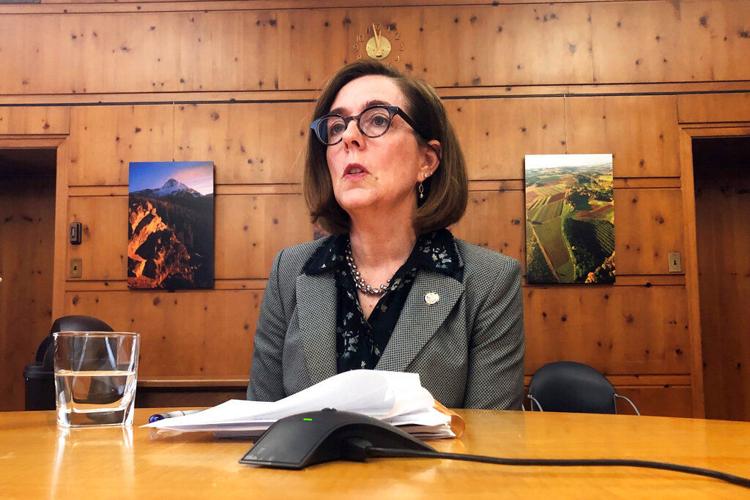The latest news stories around the Willamette Valley and around the state of Oregon from WillametteValleyMagazine.com
Monday, April 6, 2020
Willamette Valley Weather
Monday
Cloudy, then gradually becoming mostly sunny, with a high near 59. Overnight, cloudy with a low around 37. Northwest wind around 6 mph.
Tuesday
Mostly cloudy, then gradually becoming sunny, with a high near 60.
Wednesday
Mostly sunny, with a high near 63.
Thursday
Patchy fog before 7am. Otherwise, sunny, with a high near 66.
Friday
Patchy fog between 7am and 8am. Otherwise, mostly sunny, with a high near 62.
Today’s Headlines

Lane County Public Health announced three new known positive coronavirus cases as of Monday morning, all in the Eugene-Springfield area.
This makes a total of 28 positive tests known in Lane County.
The first is a woman in her 80s who lives in a private residence but is currently hospitalized in the ICU. The other two are women in their 30s who are medically stable and following public health guidelines in their private homes.
Officials are investigating any contacts these people may have had.

The Oregon Health Authority is announcing 69 new cases, bringing the statewide total to 1,068 cases.
The new cases being reported by the OHA are in the following counties: Clackamas (6), Columbia (3), Klamath (1), Lane (3), Linn (2), Marion (10), Multnomah (24), Polk (2), Sherman (1), Umatilla (2), Washington (12), Yamhill (3).
The OHA is also reporting one new death from COVID-19, bringing the total number of deaths in Oregon to 27. The Oregon Health Authority says it was a 62-year-old female in Multnomah County, who tested positive on April 2, 2020, and died on April 2, 2020, in her residence. It is unknown at this time if she had underlying medical conditions.
Oregon’s 23rd COVID-19 death is a 65-year-old man in Marion County, who tested positive on March 26, 2020, and died on April 2, 2020, at Legacy Meridian Park Medical Center. He had underlying medical conditions.
Oregon’s 24th COVID-19 death is a 59-year-old man in Multnomah County, who tested positive on March 24, 2020, and died on April 3, 2020, at his residence. He had underlying medical conditions.
Oregon’s 25th COVID-19 death is a 77-year-old woman in Multnomah County, who tested positive on March 30, 2020, and died on April 2, 2020, at her residence. She had underlying medical conditions.
Oregon’s 26th COVID-19 death is a 64-year-old woman in Multnomah County, who tested positive on March 23, 2020, and died on April 1, 2020, at Legacy Mount Hood Medical Center. She had underlying medical conditions.
Oregon’s 27th COVID-19 death was a 62-year-old Multnomah County woman who tested positive April 2 and died the same day in her residence, according to OHA. It was not known Sunday if she had underlying medical conditions.

The American Red Cross is urging citizens who are not presently working to donate blood as coronavirus lockdowns have resulted in a drastic reduction in blood donations.
Additional safety measures are being implemented to assure the health of donors.
Appointments are required in order to maintain proper social distancing requirements. Rebecca O’Rourke, account manager for American Red Cross PNW says they have lost thousands of blood donations due to COVID-19 across the states and need healthy individuals to give blood as soon as possible, and we are setting up in stationary locations to help us with additional sanitization practices, and taking extra steps to ensure we see only healthy donors.
Please Refrain from Conducting Outdoor Burning
In response to the “Stay Home, Save Lives” Executive Order to reduce the effects of the COVID-19 virus, a coalition of Oregon state agencies are asking Oregonians to voluntarily refrain from conducting outdoor burning.
The Oregon Department of Environmental Quality (DEQ), Oregon Department of Forestry (ODF), Oregon State Fire Marshal’s Office (OSFM), Oregon Department of Agriculture (ODA), and Oregon Health Authority (OHA) recognize that many Oregonians use fire as a necessary tool to manage their lands, including industrial forest landowners, farmers, small woodland owners, and rural residents. However, it’s important to weigh possible effects on the wider community before choosing to burn. Please be a good neighbor.
Smoke from fires during the current pandemic may result in the following negative consequences for the public and first responders:
- Smoke inhalation can cause upper respiratory symptoms, which could be incorrectly attributed to COVID-19, leading to unnecessary testing or self-isolation.
- Exposure to smoke and other forms of air pollution can increase the risk of contracting infectious respiratory disease such as COVID-19, increase the severity of existing respiratory infections, and worsen underlying chronic respiratory conditions.
- There is a severe shortage of personal protective equipment to reduce smoke exposure at this time.
- First responders and other emergency services are operating at a reduced capacity and have limited resources to respond to out-of-control burns.
COVID-19 affects the respiratory system. Fever, cough and difficulty breathing are the most common symptoms. While some people with COVID-19 are hospitalized, most patients recover at home, where smoke from a nearby outdoor burn could worsen their condition. To avoid additional health impacts, all people in Oregon are asked to voluntarily refrain from conducting outdoor burning activities until further notice.
Burning that can be delayed includes:
- Debris burning around one’s property
- Burn barrels
- Industrial burning
- Slash and forest burning
- Agricultural burning that would impact neighbors and can be delayed
Local officials may already have prohibited outdoor burning in your area. If you must conduct outdoor burning, please first check with your local fire agency to see if outdoor burning is still allowed. If it is, please follow best burn practices, which can be found on the website of the Office of the State Fire Marshall.
DEQ, ODF, OSFM, and ODA encourage the public to use the following alternatives to burning when available:
- Recycle paper products when possible
- Compost or chip yard debris on site
- Haul to a yard debris composting or recycling site
- Reuse old lumber
For more information, visit:
ODF – https://www.oregon.gov/odf/Fire/pages/Burn.aspx
DEQ – https://www.oregon.gov/deq/aq/Pages/Burning.aspx
ODA – https://www.oregon.gov/ODA/programs/NaturalResources/Pages/Burning.aspx
OHA COVID-19 website – https://govstatus.egov.com/OR-OHA-COVID-19
This is a rapidly evolving situation. The latest COVID-19 response and protocols information is available at the Oregon Health Authority | COVID 19 Updates webpage. Additional information can be found on the CDC website.
Business Loan Programs
The rapidly evolving response to coronavirus is having a major impact on American businesses and workers as many workplaces shut down, either out of necessity or an abundance of caution.
For southern Oregon in particular, the good news is that many small businesses were already eligible for low-interest federal disaster loans from the U.S. Small Business Administration (SBA).
The Oregon congressional delegation has lobbied the SBA to support the state’s request for a SBA Economic Injury Disaster Loan declaration for all counties in Oregon, which would provide resources to businesses that face closures and lay-offs due to the coronavirus response.

Wear a mask. With recent news that federal authorities may recommend wearing masks in public, Oregon Health Authority is reminding Oregonians that staying home and avoiding all non-essential contact with others continues to be the most important thing that anyone can do to stay healthy and keep others healthy.
“And during moments where people must go out of the house, they should stay at least 6 feet apart from others at all times,” the agency said. Before deciding whether to wear a mask, Oregon Health Authority recommends people keep two considerations central:
- Medical masks should be reserved for health care providers who are on the front lines working with patients most likely to have COVID-19. We have had shortages of those masks – and it’s critically important that our health care workers have the equipment they need to do their jobs.
- Non-medical mask use (e.g., homemade fabric masks) does not replace the need to follow guidance to stay home and limit our contact with others. It does not replace frequent handwashing, avoiding touching the face, and staying away from people who are ill. These are the most important steps to prevent the spread of COVID-19 illness.
“We continue to stress that medical masks are essential for health care workers who are in close contact with someone who has COVID-19,” said Paul Cieslak, MD, medical director for communicable diseases, OHA Public Health Division. “We need to preserve supplies of medical masks for our health care workers so they can stay safe as they work to keep all of us healthy. For the general public, homemade fabric masks, especially if well-made and well-fitting, may provide some benefit.”
Wearing a fabric mask can help prevent the spread of infection to others when the mask is worn by someone who already is infected with the virus that causes COVID-19, particularly if the person is coughing. The mask may block some infectious droplets from spreading when someone with the infection coughs, sneezes and, to a lesser degree, speaks.
“The data do not tell us how much protection homemade cloth masks provide to the person wearing a homemade mask. For this reason, homemade and fabric masks should not be considered reliable protection; but they may provide some benefit,” said Cieslak. “Above all, we continue to stress that the reliable tool we have right now to prevent the spread of COVID-19 is strict social distancing – as outlined in Governor Brown’s ‘Stay Home, Save Lives’ orders.”

On Friday, Governor Kate Brown announced the launch of the Coronavirus Small Business Resource Navigator, which will help connect small businesses to financial support and information they need to stay in business through the COVID-19 crisis.
“My goal is to connect thousands of Oregon’s small businesses with the federal, state, and local financial support available to small businesses dealing with the impacts of COVID-19,” said Governor Brown. “There are potentially billions of dollars available from the CARES Act, and I want Oregon businesses to get their fair share.”
Business Oregon will lead the new Small Business Resource Navigator, with support from several state agencies including the Oregon Employment Department, the Oregon Secretary of State, and the Oregon Department of Consumer and Business Services.
The Resource Navigator will include a hotline and a website containing comprehensive information on key programs for small businesses, available at HERE, with access to:
- Small Business Association programs established by the recently passed federal CARES Act, including: the Paycheck Protection Program, Economic Injury Disaster Loans, and Debt Relief programs
- State of Oregon programs, including the Entrepreneurial Development Loan Fund
- Local government programs, such as the South Central Oregon Economic Development Development District Economic Relief Loan Fund for Small Businesses
Around the state of Oregon
Pacific Power Foundation offers support for community organizations responding to COVID-19
The utility is encouraging businesses and individuals to support community organizations, now facing extraordinary demands for services, to ensure those in need continue to receive support
Community organizations are facing unprecedented challenges and demand for vital services. Pacific Power’s charitable arm, the Pacific Power Foundation, has committed $250,000 for immediate support to critical community-serving organizations in Oregon, Washington and California.
From providing free meals for children during school closures to deploying resources and support to small businesses and care for seniors, community-based groups throughout the West have put out a call for assistance to support local COVID-19 initiatives.
“Food banks and other critical organizations serve the most vulnerable populations in our communities and are under tremendous strain,” said Stefan Bird, president and CEO. “The Pacific Power Foundation is committed to supporting vital community organizations that depend and survive on contributions like this.”
Agencies include the Oregon Food Bank, Partners for a Hunger-Free Oregon, Oregon Community Foundation, Portland Rescue Mission, Oregon Energy Fund, Salvation Army divisions in California and Washington and the Northwest Community Action Center.
Oregon Food Bank CEO Susannah Morgan underscored the importance of community partnerships, especially in times of crisis. “With the strong support of allies like Pacific Power, Oregon Food Bank can ensure nutritious food reaches hard-hit communities throughout Oregon and Southwest Washington. By working collectively, our network of more than 1,400 partners across Oregon and SW Washington stands ready to meet this crisis head-on. Together, we can ensure hunger is not a symptom of COVID-19 — and help us all emerge stronger.”
“Oregon families are facing the triple crisis of public health, closed schools and lost wages during this pandemic,” said Annie Kirschner, executive director for Partners for a Hunger-Free Oregon. “Though many of us have to stay home, we are still coming together to make sure everyone has enough food to eat. We’re grateful to partners like Pacific Power for responding quickly to help make sure our neighbors, especially those most vulnerable across the state, are connected to resources.”
Looking for ways to help? Follow the links to support these organizations’ vital work.
Partners for a Hunger Free Oregon
Northwest Community Action Center
(SALEM, Ore.) — In response to the “Stay Home, Save Lives” Executive Order to reduce the effects of the COVID-19 virus, a coalition of Oregon state agencies are asking Oregonians to voluntarily refrain from conducting outdoor burning.
The Oregon Department of Environmental Quality (DEQ), Oregon Department of Forestry (ODF), Oregon State Fire Marshal’s Office (OSFM), Oregon Department of Agriculture (ODA), and Oregon Health Authority (OHA) recognize that many Oregonians use fire as a necessary tool to manage their lands, including industrial forest landowners, farmers, small woodland owners, and rural residents. However, it’s important to weigh possible effects on the wider community before choosing to burn. Please be a good neighbor. Smoke from fires during the current pandemic may result in the following negative consequences for the public and first responders:
- Smoke inhalation can cause upper respiratory symptoms, which could be incorrectly attributed to COVID-19, leading to unnecessary testing or self-isolation.
- Exposure to smoke and other forms of air pollution can increase the risk of contracting infectious respiratory disease such as COVID-19, increase the severity of existing respiratory infections, and worsen underlying chronic respiratory conditions.
- There is a severe shortage of personal protective equipment to reduce smoke exposure at this time.
- First responders and other emergency services are operating at a reduced capacity and have limited resources to respond to out-of-control burns.
COVID-19 affects the respiratory system. Fever, cough and difficulty breathing are the most common symptoms. While some people with COVID-19 are hospitalized, most patients recover at home, where smoke from a nearby outdoor burn could worsen their condition. To avoid additional health impacts, all people in Oregon are asked to voluntarily refrain from conducting outdoor burning activities until further notice.
Burning that can be delayed includes:
- Debris burning around one’s property
- Burn barrels
- Industrial burning
- Slash and forest burning
- Agricultural burning that would impact neighbors and can be delayed
Local officials may already have prohibited outdoor burning in your area. If you must conduct outdoor burning, please first check with your local fire agency to see if outdoor burning is still allowed. If it is, please follow best burn practices, which can be found on the website of the Office of the State Fire Marshall.
DEQ, ODF, OSFM, and ODA encourage the public to use the following alternatives to burning when available:
- Recycle paper products when possible
- Compost or chip yard debris on site
- Haul to a yard debris composting or recycling site
- Reuse old lumber
For more information, visit:
ODF – https://www.oregon.gov/odf/Fire/pages/Burn.aspx
DEQ – https://www.oregon.gov/deq/aq/Pages/Burning.aspx
ODA – https://www.oregon.gov/ODA/programs/NaturalResources/Pages/Burning.aspx
OHA COVID-19 website – https://govstatus.egov.com/OR-OHA-COVID-19
This is a rapidly evolving situation. The latest COVID-19 response and protocols information is available at the Oregon Health Authority | COVID 19 Updates webpage. Additional information can be found on the CDC website.
This week, the Department of Justice announced that it is making $850 million available to help public safety agencies respond to the challenges posed by the outbreak of COVID-19. State, local and tribal law enforcement agencies in Oregon are eligible to receive nearly $10 million in supplemental funding.
The Coronavirus Emergency Supplemental Funding program, authorized by the recent stimulus legislation passed by the Congress and signed by President Trump, will allow eligible state, local and tribal governments to apply immediately to receive these critical funds. The department is moving quickly to make awards, with the goal of having funds available within days.
“In a matter of weeks, I have seen countless examples from across our state and country of law enforcement officers and other public safety professionals going far above and beyond their regular duties to serve our communities in this time of great need,” said U.S. Attorney Billy J. Williams. “I’m pleased to join the department in announcing this much needed funding and will do everything in my power to expedite its distribution to eligible law enforcement agencies here in Oregon.”
“This is an unprecedented moment in our nation’s history and an especially dangerous one for our front-line law enforcement officers, corrections officials, and public safety professionals,” said Office of Justice Programs Principal Deputy Assistant Attorney General Katharine T. Sullivan. “We are grateful to the Congress for making these resources available and for the show of support this program represents.”

Blue Zones Project, Oregon – “Tips for Working From Home”
In the spirit of supporting our organizations across the state as many offices navigate a transition to remote work and virtual meetings, Blue Zones Project wants to provide you a few helpful tips for working from home:
- Set up a designated work area and working schedule.
It can be hard to ‘turn off’ from a day at work when your living and working space are the same. Be sure to designate a space for work equipment and time on the clock to ensure you still maintain a work-life balance. Be sure to turn off work notifications when you’re done working for the day.
- Wake up and get ready for the day as usual.
Be sure to wake up with enough time to continue your morning routine and get in the right headspace for work. Sleeping in and not giving yourself enough transition time can make your morning feel rushed and stressful. Don’t forget to include a healthy breakfast!
- Continue to take regular breaks.
Taking time for a short walk, standing up for a few minutes and having a scheduled lunch break are important to your routine and can ensure that you’re downshifting just enough to refocus and complete your work in a timely manner. Microbreaks, such as resting the eyes for 60 seconds, are made easy by this free Chrome extension, Break Timer.
- Communicate to people in your household when you are working and request quiet time.
It can be easy to be distracted by family members at home, chores that need to be done and other everyday things. Be sure to communicate with your family when you need quiet time for working and conference calls to decrease stress.
Regular stretching during the day can help reduce stress and increase productivity. Download our desk stretches flyer for easy tips to incorporate stretching into your day!
The latest State of Oregon Covid-19 News & Preparedness Information Here.

